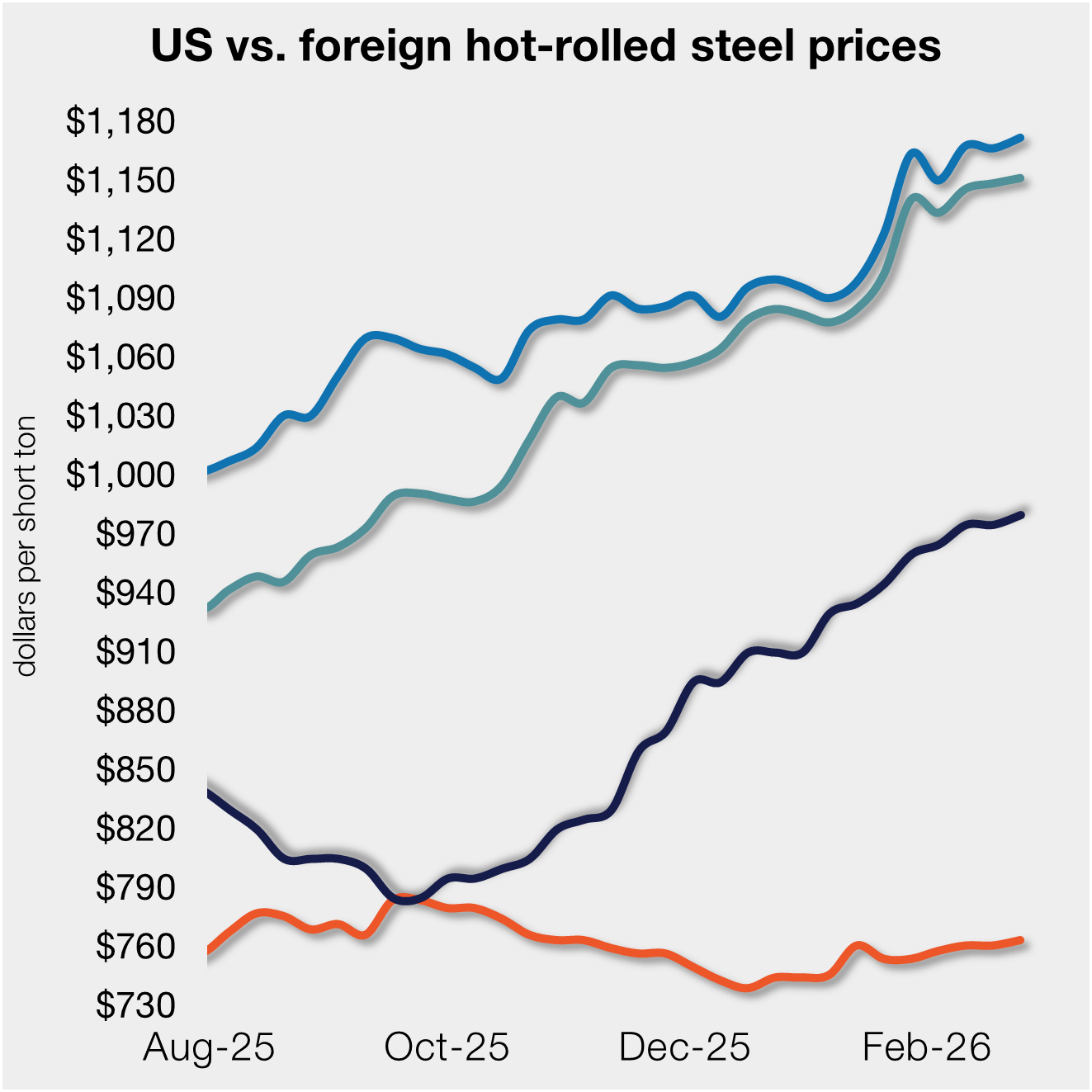Overseas

May 16, 2023
Supply to Pull Global Sheet Prices Lower Over the Near Term: CRU
Written by Ryan McKinley
By CRU senior analyst, Ryan McKinley
Supply has become increasingly available to sheet markets around the world. In many cases, this in coinciding with weak demand, creating a supply glut over the near term and increasing competition among exporters in major sheet-producing regions.
The key for markets to retighten lies with China, with exporters there offering the most aggressive discounts so far (except for Russia).
Going forward, we believe the recent sharp price decrease in the Chinese domestic market was overdone and will be followed by some upward corrections in May as more steel mills rationalize production. The extent of any price recovery, however, will still be limited in the short term given lukewarm demand.
In other Asian markets, preliminary results from CRU’s Asian Business Confidence survey show that market confidence has fallen back to the levels last seen in October–November 2022. The drop is a consequence of the uncertainty around the current macroeconomic outlook and will keep buyers on the sidelines. Likewise, Japanese sheet export prices will continue to face downward pressure, although there may be some resistance from sellers as prices fall further.
Higher availability in the global market will also continue to impact European pricing over the near term even with ongoing output cuts and production issues. Domestic mills will have to compete with lower-priced imports to retain their share of paltry demand in the region, and this will weigh on the market for the next few months at least.
Russian HR coil in the Black Sea market will remain under pressure and exporters there will continue to offer material into Turkey and the MENA region at a discount to compete with imports from China.
The US market, while somewhat shielded from these developments because of tariffs, will also come under pressure from supply-side factors. With service center data now showing a looming surplus in the US combined with higher import levels over the summer months, we expect US sheet prices to fall back to more historically normal levels.
This article was originally published on May 11 by CRU, SMU’s parent company.
Request more information about this topic.
Learn more about CRU’s services at www.crugroup.com







